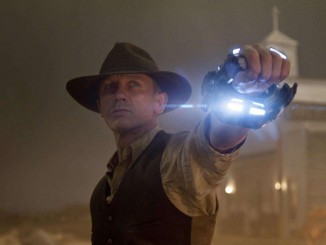 Let’s face it. There are a lot of expectations sitting on this movie.
Let’s face it. There are a lot of expectations sitting on this movie.
When the James Bond franchise reinvented itself in 2006 with Casino Royale, audiences and critics were pleasantly surprised with its new found sense of realism and character development. Taking Bond to his first days as a top agent with a license to kill for Her Majesty’s Secret Service lets the series truly explore that psyche of its main character, something it had been hesitant to do to any degree in its four decades of existence.
Quantum Of Solace picks up right where Casino Royale left off, both literally and figuratively. The new film continues the exploration of Bond’s development into the detached killer that creator Ian Fleming described in his series of books that inspired the film franchise.
And as for those expectations, Quantum Of Solace does a good job at fulfilling most of them.
As a literal continuation, the new film picks up mere minutes after the previous one ended. Bond (Daniel Craig) is transporting Mr. White (Jesper Christensen), the member of the terrorist organization that Bond shot and captured in the closing seconds of Casino Royale, back to a British Secret Service safehouse to be interrogated. However, when his claim that his organization has people everywhere hits a little too close to home, Bond heads to track them down. The trail leads to Haiti and Dominic Greene (Mathieu Amalric), a business who built his success on environmentally friendly technologies. But Bond is soon to discover that the mysterious terrorist organization is even larger than previously thought. But as Bond continues his investigation, his superior M (Dame Judi Dench) begins to question whether Bond is intent on fulfilling his duty or extracting revenge for the death of his lover Vesper.
For one of the shortest Bond films in the franchise, it has one of the densest plots. The storyline has a layered complexity, with Bond’s actions carrying ramifications beyond what may be immediately apparent. There’s an underlying current of shifting geopolitical alliances that enhance the stakes of Bond’s mission for the audience, though Bond himself is oblivious to the enormity of some of the machinations he’s disturbing. He’s a driven engine of vengeance. But the script, by returning writers Paul Haggis, Neal Purvis and Robert Wade, does allow Bond a few moments of compassion to keep him at least marginally anchored to his humanity.
 Building on the work he started in Casino Royale, Craig continues to plumb Bond’s dark side for dramatic effect. He plows through this movie, simmering rage always just barely held in check below the surface. He tells people that he is not motivated by revenge, but he’s a bad liar. The chemistry he shares with Dame Judy Dench is stronger this time around as well. Her own work is as impressive as always. The only on-screen holdover from the previous style of Bond films, she is sports a much harder edge here. When she threatens an enemy agent in custody with torture in an almost dry, matter-of-fact voice, you believe her.
Building on the work he started in Casino Royale, Craig continues to plumb Bond’s dark side for dramatic effect. He plows through this movie, simmering rage always just barely held in check below the surface. He tells people that he is not motivated by revenge, but he’s a bad liar. The chemistry he shares with Dame Judy Dench is stronger this time around as well. Her own work is as impressive as always. The only on-screen holdover from the previous style of Bond films, she is sports a much harder edge here. When she threatens an enemy agent in custody with torture in an almost dry, matter-of-fact voice, you believe her.
Aggravatingly, the weakest part of the film is the staging and photography of its action sequences. Director Marc Forster seems intent on sticking us right in the middle of things, handheld cameras and quick cuts disorienting us. The lack of the typical pulsating, exciting score music in favor of heightened natural sound further intensifies their visceral nature. While this technique can be effective if done right, it doesn’t work here. Forster keeps us too off-balance, not giving the audience a chance to have a real sense of the action in both the sense that it plays out in and in its choreography. In other instances, Forster intercuts his action with footage of some public event playing out in the vicinity. While I suppose that an argument could be made that he is trying to show how someone like Bond is all that stands between the general, unsuspecting public and the evil machinations he constantly is at war with, but all the editing does is make the sequences come across as almost too abstract.




